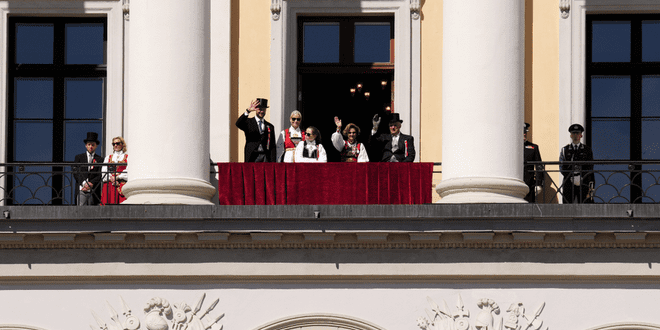Since 1901, the Nobel Prize has been awarded in the fields of physics, physiology or medicine, chemistry, literature and peace, while a memorial prize in economic sciences was added in 1968.
Why is there Nobel Prize for the important field of mathematics? The apocryphal answer is that Swedish mathematician Gosta Magnus Mittag-Leffler had an affair with Alfred Nobel’s love interest. Infuriated by that, he supposedly decided to exclude mathematics as an awards category. Another explanation is that 19th-century Swedish businessman, chemist, engineer, inventor and philanthropist Alfred Nobel, who invented dynamite, wanted to award people for “practical” inventions and thought that mathematics was too theoretical.
As a result of this vacuum, a Norwegian award called the Abel Prize in the field of mathematics has, since 2003, been awarded annually by the King of Norway to one or more outstanding mathematicians. It is named after Norwegian mathematician Niels Henrik Abel (1802-1829) and directly modeled after the Nobel Prizes.
The Abel Prize’s history dates actually back to 1899, when its establishment was proposed by the Norwegian mathematician. Three years later, said he was willing to pay for a mathematics prize to complement the Nobel Prizes, but the establishment of the prize was prevented by the in 1905. Previously, the funding came from the Abel foundation, but today the prize is financed directly through the national budget.
The prize carries with it a cash award of 7.5 million Norwegian Kroners ($834,000).
Now it is the time for Israel to celebrate. This top mathematics prize in the world will be awarded to a leading mathematics professor at the Hebrew University of Jerusalem.
The Norwegian Academy of Science and Letters has just announced it will award the Abel Prize to 85-year-old Prof. Hillel Furstenberg and to Prof. Gregory Margulis at Yale University in Rhode Island, for pioneering the use of methods from probability and dynamics in group theory, number theory and combinatorics.” Furstenberg is the first Israeli ever to win this prestigious prize.
Furstenberg and Margulis invented random walk techniques, a central branch of probability theory. A random walk is a path consisting of a succession of random steps. These techniques were used to investigate mathematical objects and introduced probabilistic methods to solve many open problems in group theory, number theory, combinatorics and graph theory.
“Furstenberg and Margulis stunned the mathematical world by their ingenious use of probabilistic methods and random walks to solve deep problems in diverse areas of mathematics,” said Abel committee head Hans Munthe-Kaas. “They brought down the traditional wall between pure and applied mathematics,” he continued, “and opened up a wealth of new results…with applications to communication technology and computer science.”
Furstenberg was born in Berlin to a Jewish family forced to flee Nazi Germany in 1939 when Hillel was four years old; they managed to settle in the US.
Already as an undergraduate, Furstenberg began to develop a reputation as a promising mathematician. When he published one of his earliest academic papers, rumors began to circulate that “Furstenberg” wasn’t an individual but rather a pseudonym for a group of mathematicians, as experts in the field couldn’t believe that just one person could pull ideas from so many different areas.
After teaching at several leading American universities, including Princeton, the Massachusetts Institute of Technology and the University of Minnesota, Furstenberg moved to Israel in 1965 to join the Hebrew University’s Einstein Institute of Mathematics. This move helped establish Israel as a world center for mathematics, and Furstenberg went on to win the Israel Prize in 1993 and the Wolf Prize in 2007.
“Prof. Furstenberg’s Abel Prize is a true honor for Hebrew University and for Israel as a whole,” declared Hebrew University President Prof. Asher Cohen. “Hillel is not only a world-class mathematician but a mensch [a person of integrity and honor] and a mentor to scores of students who have already changed the face of mathematics. We couldn’t be prouder of his award, a Nobel-level achievement.”
Like Furstenberg, Russian-born Margulis was also praised as a leading mathematician from a young age, but being Jewish in the then-Soviet Union meant that he was unable to secure a job at Moscow University. He ultimately emigrated to the US and began working at Yale University. Due to the a decade of age difference between them and to travel restrictions in the Soviet Union, the two laureates did not formally collaborate, but they did influence each other’s work.
This year’ Abel Prize Award ceremony will take place at a later date when His Majesty King Harald V of Norway will present it to the laureates. The original ceremony, scheduled for May 19, has been postponed due to the corona outbreak.
The Hebrew University of Jerusalem is Israel’s leading academic and research institution, serving 23,000 students from 80 countries. Founded in 1918 by visionaries including Albert Einstein and Sigmund Freud, it is ranked among the world’s 100 leading universities. So far, its faculty and alumni have won eight Nobel Prizes – and now it is getting the Abel Prize.



